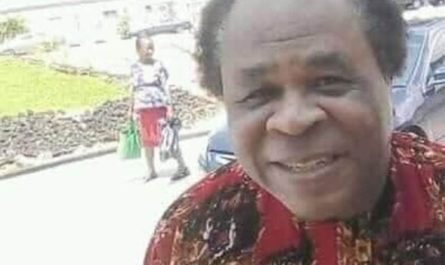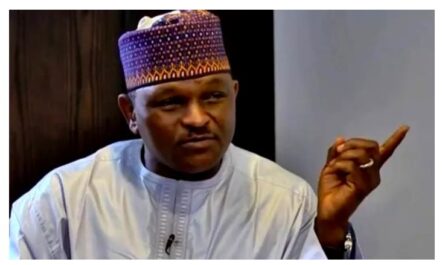All tribes and races have specific attributes that almost become a trademark. The Igbo tribe in Nigeria have been known to be highly entrepreneurial and have a huge track record of emigrating from their homeland in the South East of Nigeria. A mix of these two traits explains why the Igbos bring a myriad of economic benefits to the communities they resettle in.
While the diverse range of skills, expertise and merchandising the Igbos bring to their host communities is undeniable, it, unfortunately, means that time and time again, Igbos have been targets of specific hate crimes whenever tribal agitations escalate in these same host communities. Igbo-owned businesses often are targets of arson and looting.
For decades, all over Nigeria, several communities where Igbos have settled and thrived have been very hasty to overlook contributions from these entrepreneurs and quickly raze multimillion worth of goods owned by Igbosto the ground whenever even the most mundane of issues arise. This prejudiced vice almost always leaves members of this tribe with humongous irrecoverable losses that are.
In the aftermath of this endless cycle of recurrent arson attacks against Igbos, these recurring crimes are never thoroughly investigated. Culprits are never brought to justice. And compensation is never paid to the victims. Nigeria as a society has taken these incidents as somewhat ‘normal’ and time and time again swept them under the carpet and refused to acknowledge the loss, and most often even the loss of lives of the victims.
Let us examine a couple of these incidents for clarity of purpose
ABUJA – Dei Dei Market Igbo traders dominate the building material trade in this market. In May 2022, a pregnant woman fell off a commercial motorcycle and was unfortunately crushed to death by an oncoming truck.
Irate people who witnessed this incident set the motorbike and three other nearby motorbikes on fire. An argument ensued when Officers of the Federal Road Safety Commission who arrived at the scene were allowed to take away the woman’s corpse but prevented from taking the driver of the motorbike into custody.
Within minutes, the tension escalated into the timber division Dei Dei market and Igbo traders who were unaware of the situation were attacked. Between four and five people lost their lives, several were wounded and Igbo-owned businesses worth billions of naira were set on fire razing them to the ground.
Military, police and vigilante were all present at the market at the time of the chaos and observers believed they did not do enough to curb the destruction.
In 2014 ad 2015, similar destructions of Igbo businesses ad occurred in Dei Dei market but this particular attack was of a higher magnitude than all the previous ones combined.
SOKOTO – Igbos Attacked A female Christian student of the Shehu Shagari Collee of Education, was lynched to death by her fellow students for blaspheming the name of the Islamic prophet Mohammed. Videos and photo evidence captured in the incident in great detail were distributed all over the internet with the culprit’s faces in the full glare of the whole world.
It didn’t take long before the police apprehended a couple of them for incitement to riot and conspiracy to murder. These arrests spurred reprisal attacks o innocent Igbo traders in Sokoto.
Immediately after their arrests, large numbers of Muslims stormed areas where Igbo-owned businesses and properties were located in Sokoto and started looting as well as torching them down.
Deborah Samuel Yakubu’s death was not justifiable in any way shape or form however, it is pertinent to note that she was not from the Igbo tribe. She was a northerner from Niger State.
Because of the long history and unspoken rule of making Igbos take the blame for every occurrence in Nigeria, and the government’s longstanding history of never punishing attackers of the Igbos, once again, this incident was swept under the rug to date. No one has ever been arrested much less convicted and no Igbo person was ever compensated for their loss to date.
OSUN – Oshogbo Attacks at Igbo businesses are not limited to the predominantly Muslim North of Nigeria. They happen anywhere within the boundaries of Nigeria. It almost seems as if the Igbos only enjoy security when they are outside Nigeria.
In Oshogbo’s 2022 gubernatorial election, Igbo’s living in Osun State showed overwhelming support for their preferred candidate, Senator Ademola Adeleke. The right to vote and be voted for is a fundamental right under the constitution of Nigeria.
Senator Adeleke of the People’s Democratic Party (PDP) had a unique leverage over his major opponent, Alhaji Gboyega Oyetola of the All Progressives Congress (APC). His ability to speak fluent Igbo won the hearts of the Igbo immigrants in Oshun State. He is rumoured to be half Igbo and grew up in Enugu State.
Shortly after he emerged as the winner of the gubernatorial elections political thugs stormed Old Garage market, Oshogbo with one sinister mission; to vandalise and loot Igbo traders that supported Senato Adeleke.
The Igbos are obviously not the majority population in Oshogbo and most likely did not contribute to the majority votes. There also is no evidence that every single Igbo person who voted, cast their vote for Senator Adeleke. Some Igbos probably supported and voted for his opponent.
Yet once again, because antecedents have enabled every single tribe in Nigeria to antagonise, victimise, humiliate and even kill the Igbos without any single consequence, the Igbos were yet again targeted for exercising their political rights.
KANO – Hotbed Several religious riots in Kano have claimed the lives and properties of Igbos who are predominantly Christians but have lived and traded in this city for almost a century.
In 1966, the amajiris ad the bicycle renters invaded and massacred about six hundred Igbos living in the Sabon Gari area of Kano. This pattern would be repeated in the 1980 Maitatsine riots. In 1991, Igbo people were attacked, their properties destroyed and their shops looted because Islamic fundamentalists were determined to ensure that a crusade held by the late evangelist Reinhard Bonnke would not hold. In 1993, another Maitatsine-style riot would claim several lives.
It is worth noting that many of the riots and destruction of Igbo lives and properties in Kano usually trigger a spillover effect sending ripples to other states like Kaduna, Katsina and more and vice versa. Once attacks on Igbos start in one city or state, and the news disseminates, it heralds Islamic fundamentalists in other geographical regions to carry their weapons and shed blood, loot shops and destroy properties.
Following such events, the mass exodus of the Igbos start and the brave ones who chose not to leave, become more proactive and aggressive in defending themselves and their investments against any future attacks.
Conclusion
Only three of these incidents have been discussed but several more running into hundreds have occurred in past decades and continue to occur to date.
Unprovoked, mindless attacks against the Igbos are condoned and overlooked by government after government almost as if it is normal. Culprits are never brought to justice and victims are never acknowledged or even compensated.
Perpetrators of these attacks fail to realise that they also suffer the consequences of the attacks. Like other migrant groups, Igbos bring a unique set of social and economic advantages to their host communities.
Migrants are usually more willing to develop and live in the undeveloped and underdeveloped parts of the communities they settle in. This enhances the geographical location not just aesthetically, it increases real estate value to the community as a whole.
The economic activities of Igbo migrants increase the volume of economic activities in their host communities and usher in new activities. In a building materials market like Dei Dei, a trader selling timber and plywood would attract others selling complementary products like roofing sheets, ails, plumbing materials and many more. This increased synergy even benefits local indigenous traders or handymen who either trade in other complementary products or offer building services.
When the Igbo’s businesses are attacked and destroyed, the suppliers along the value chain of the products and services they have expertise in, are affected. The locals are not left out
Looting, arson and outright killing of Igbos make the host area unattractive to people who are not even of Igbo extraction. Non-Igbo migrants would not want to settle in communities where there is a history of reprisal attacks for fear that they might also become victims.
Hostility breeds rational fear. Negative activities bring the economic activities in the area to a halt. And when economic activities dwindle, both indigenes and immigrants will bear the brunt. Repeated attacks on Igbos in any area they settle are not punitive on the intended targets but also on their attackers who unknowingly cut their noses to spite their faces.
It is quite pitiful that the Igbos have somewhat become an endangered species in the country of Nigeria. After examining these, it is no why members of the tribe continually insist that they are marginalised and have not given up the quest for secession.




